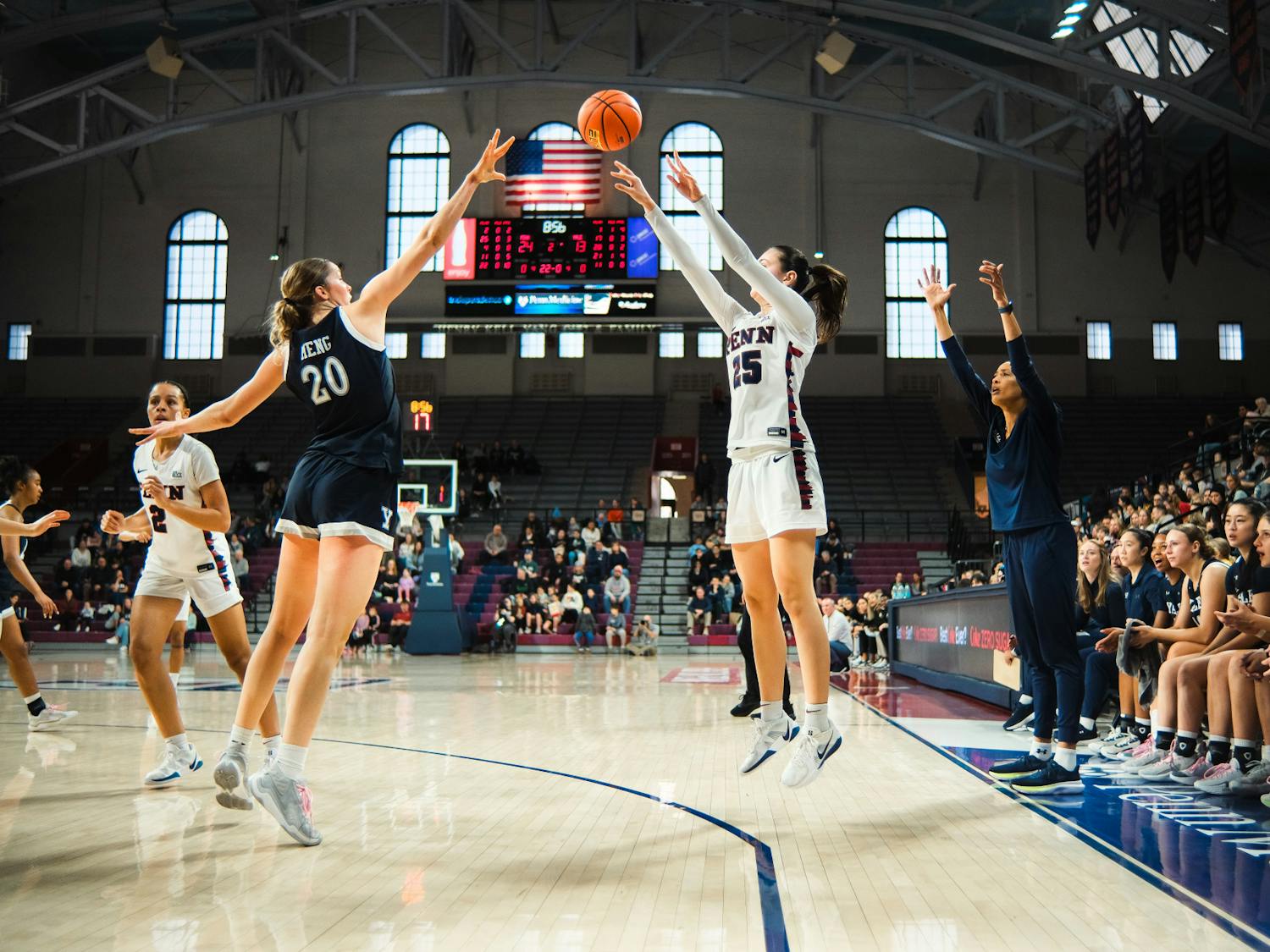Dear Moksh,
On Thursday, your article titled “Penn’s competition can be brutal, but it’s one of the best things about it” was published. In it, you acknowledged Penn’s competitive atmosphere and encouraged students to use it for motivation. You urged your readers to stop comparing ourselves to our peers and instead channel our stress and feelings of “inadequacy and jealousy” into building a “bullet-proof personality, unfazed by our surroundings and rooted in self-confidence.” In the end, you challenged us to be ourselves, reassuring us that the validation we get from ourselves will be more fulfilling than the validation we may get from comparing ourselves to others.
If Penn’s competitive atmosphere and mental health issues were perpetuated solely by academics, your advice — to stop comparing ourselves to others — would be sound and simple. However, the interactions between competition and mental health are not so straightforward. Your article seems to completely ignore the near-insurmountable socio-economic pressures at Penn. Even if your advice is intended only for academic struggles and feelings of academic inadequacy, your advice is hardly applicable to students who are already suffering from depression and anxiety.
If we want the prevailing “Penn face” to be broken down, we should be open about our experiences. Therefore, to illustrate my previous statements, I’ll describe some of my own struggles.
I’m a first-generation, low-income, queer student. Because I have little contact with my parents, I rely on my work-study position to pay my phone bill, medical bills, for school materials, transportation bills, and for food. I spend roughly 15 hours per week at work while my peers call home for money to go out to parties, to pay Greek life dues, to live off campus, to buy the newest textbooks and online codes. By not needing to work, my peers have more time for homework and studying, giving them the opportunity to do better in class than their less wealthy peers. Of course, I only compare myself to my peers when I have the time and energy which, on most days, I do not. Again, to break down my Penn face, I’ll admit that I hardly have the energy to get out of bed and eat more than once per day, let alone worry about what others are doing.
As you mentioned in your article, we are all qualified to be at Penn. However, due to inherent privileges, some of us are better equipped to thrive here than others. The fact stands that Penn has had 14 suicides over the past five years. Penn’s over-competitive culture is pushing people past their limits. Competition may be one of your favorite aspects of college, but not all Penn students want to “embrace this culture as a gift.”

Furthermore, you suggest that challenging us to be confident in who we are despite feelings of inadequacy will lead to a larger reward than outdoing a peer will. As a trans person, I’d like to think I know a thing or two about self-confidence, and I believe that the rewards of being confident in yourself are incomparable to the rewards of helping someone in need.
I propose a new challenge to the Penn community: reject the culture of competition at Penn. If a fellow student needs notes because they missed a class, send them a copy of yours. If you see someone struggling in a class in which you are succeeding, I challenge you to forget the class curve and explain the difficult concepts to them. If you have a friend who hasn’t attended classes in a few days because they don’t have the energy, bring dinner to their house or dorm and spend time with them. I challenge you to be honest when you’re struggling so that your peers feel comfortable enough to be honest with you and have an open conversation about the difficulties of being at Penn. Remind your friends — especially freshmen — that any grade you worked hard for is a good grade, that not sleeping is as bad as sleeping too much, that not eating is not normal, and that it’s OK to need help.
Many people here may say that life after Penn is full of competition, so we should just adjust to it now. However, at an institution as innovative as Penn, I expected more from students than to simply accept that this is the way the world works. The world doesn’t have to be this way. You said it yourself: “we can change the perception of competition collectively.”
JAMES AYKIT is a College sophomore from Philadelphia studying biology. His email address is aykit@sas.upenn.edu.









